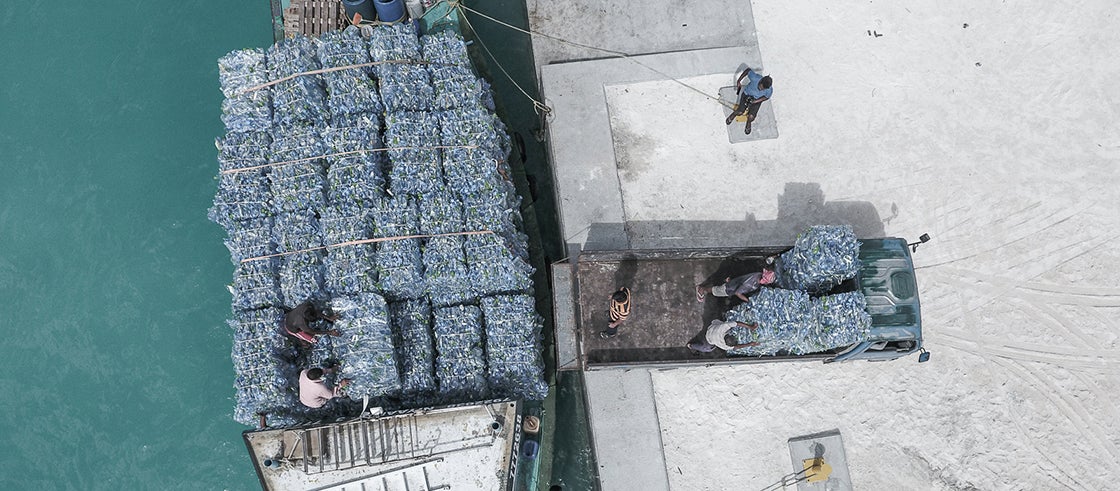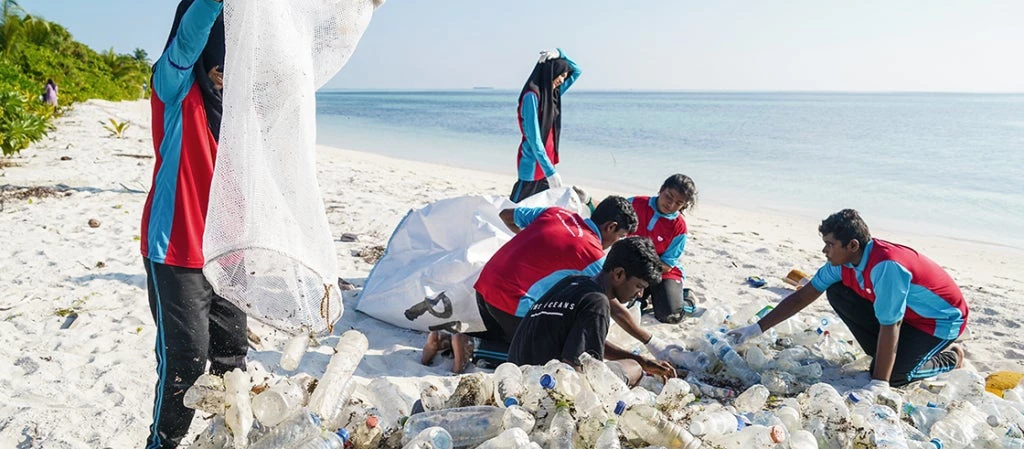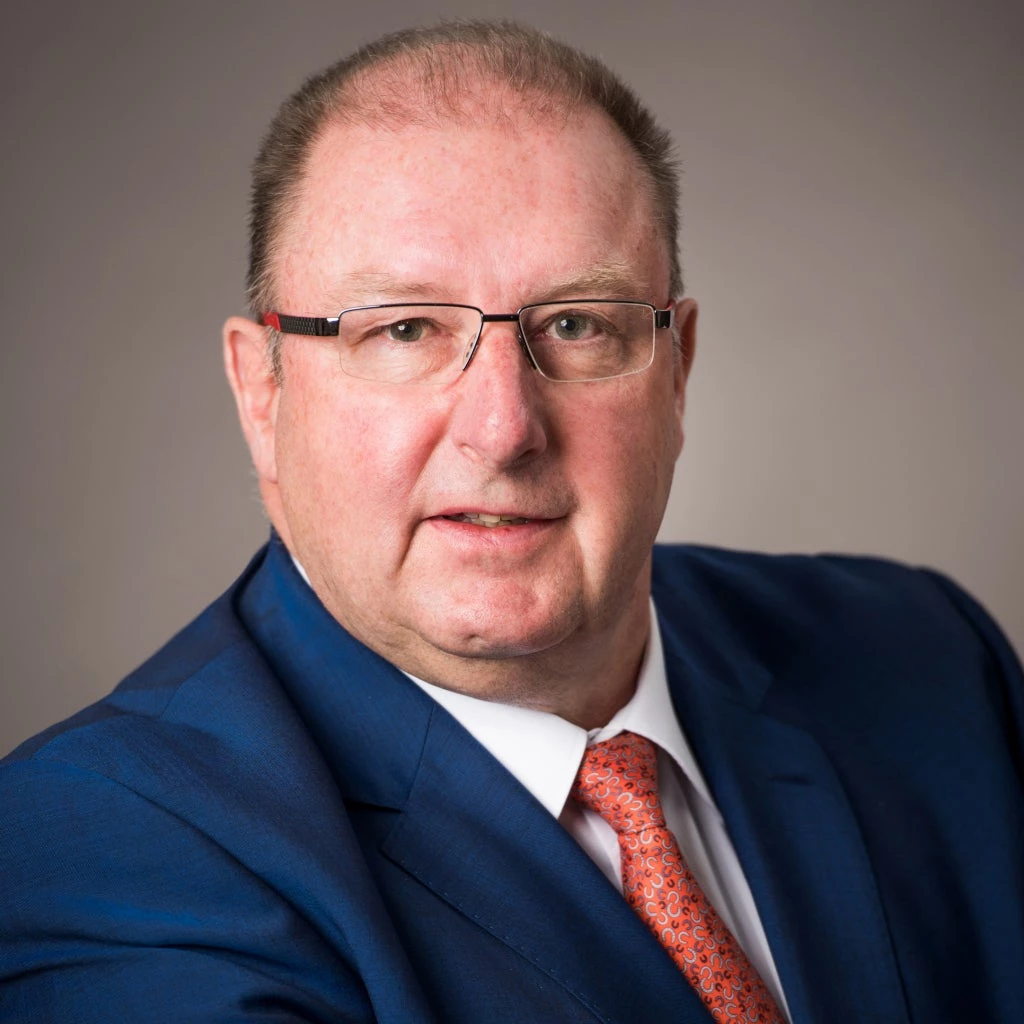 Intercepted plastic waste is baled and transported for recycling through Parley collaborations in the Maldives. Photo: Parley for the Oceans
Intercepted plastic waste is baled and transported for recycling through Parley collaborations in the Maldives. Photo: Parley for the Oceans
A quiet revolution is underway in Maldives, a low-lying archipelago of more than 1200 coral islands surrounded by some of the bluest water in the Indian Ocean. The nation’s small but determined population of just over a half-million refuses to allow plastic trash to continue poisoning the ocean and strangling marine life.
Residents on the island of Maalhos restricted the use of plastic water bottles, built a small recycling center to separate plastics from other solid waste for reuse, and introduced a glass water bottling center that is now a thriving business enterprise. Supported by the World Bank, this work benefits the environment and boosts the local economy.
Maldives schoolchildren attend special classes to learn about marine plastic pollution
According to some estimates, by 2050 the world’s oceans will contain more plastic than fish
Today, on World Oceans Day, the World Bank, Parley for the Oceans, and the South Asia Cooperative Environment Programme, an inter-governmental institution, are launching an ambitious $50 million regional project based on the Maldives example.
The
Urgent action is needed. If global plastic production continues at its current rate of about 300 million tons annually, according to some estimates, by 2050 the world’s oceans will contain more plastic than fish.
Plastic pollution of all sizes is found everywhere, on remote beaches, deep ocean trenches, in sea ice cores, snowfalls, and even in the very air we breathe. Plastic waste has entered the human food chain, as evidenced by tiny bits of plastic trapped in the internal organs of marine life and in our drinking water.
COVID-19 poses difficult choices between health and the environment, with increased use of single-use plastics and increased production of medical waste further threatening the Earth’s oceans

Keeping the oceans healthy becomes even more urgent now, as COVID-19 spreads globally, disrupting lives and economies including communities whose livelihoods depend on the oceans. The pandemic also poses difficult choices between health and the environment, with increased use of single-use plastics and increased production of medical waste further threatening the Earth’s oceans.
The Plastic-free Rivers and Seas for South Asia project will offer grants to fund innovative
There is no single solution for an environmental problem as complex as plastic pollution. Collaboration is the way forward.
Importantly, the entire South Asia region, all eight countries, is participating in this project to move towards more plastic free rivers and seas. The region generates an estimated 334 million tons of mismanaged waste annually. About three-fourths of the waste ends up in the ocean, and a substantial amount of it is plastic.
The region’s eight nations – Afghanistan, Bangladesh, Bhutan, India, Maldives Nepal, Pakistan, and Sri Lanka – do not often stand together in solidarity because of historical differences. In this case, however, all have banned single-use plastic bags and are eager to work together on new approaches to address plastic pollution that crosses national borders. We applaud their commitment to environmental protection.
The South Asia Cooperative Environment Program, or SACEP, will lead the project. Founded in 1982, SACEP is a respected organization that has played an active role in environmental protection and marine litter reduction work on behalf of the eight South Asian country member-states.
We also need your help.
Please start or join a local group to clean up plastic litter fouling a river or watershed.
Do it today.



Join the Conversation